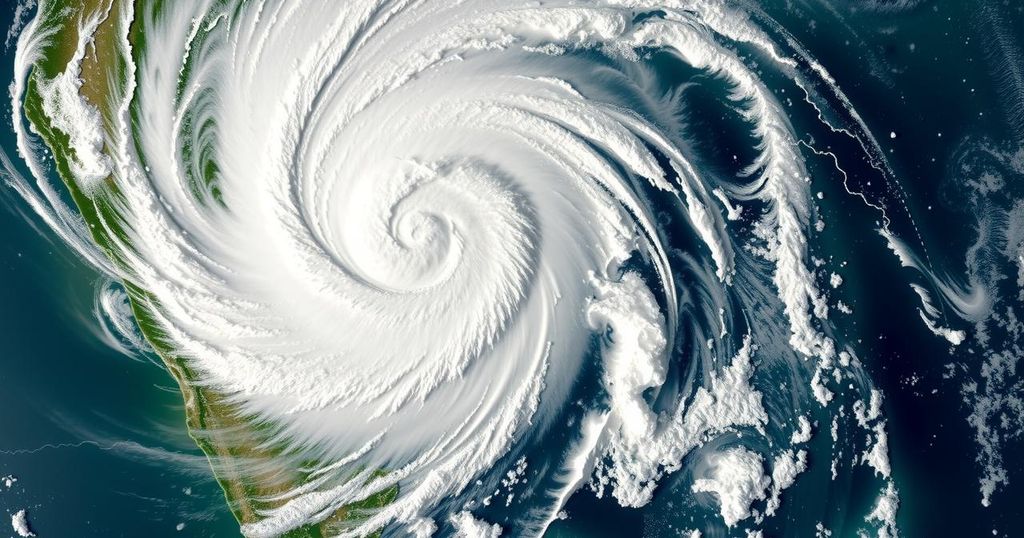Tropical Cyclone Chido has made landfall in Mozambique, causing severe damage and affecting approximately 24,102 people. Emergency Relief Coordinator Tom Fletcher has allocated $4 million for immediate response. The cyclone is expected to dissipate by December 17 as it moves towards Zimbabwe, with substantial rainfall and potential flooding forecasted in various southern African countries.
Tropical Cyclone Chido has severely impacted Mozambique and Malawi as it made landfall on December 15, 2024, bringing with it powerful winds and heavy rainfall, affecting thousands of residents. The cyclone is expected to dissipate by December 17 in Zimbabwe. Emergency Relief Coordinator Tom Fletcher has allocated $4 million from the Central Emergency Response Fund (CERF) for urgent aid related to this disaster. Recovery efforts are ongoing despite challenges such as communication disruptions and impassable roads in affected regions.
The cyclone’s effects have been devastating in Mozambique, where gusts reached 80 km/h, thunderstorms occurred, and rainfall exceeded 250 mm within 24 hours. According to reports from the Southern African Development Community, at least one individual has lost their life, while 35 have sustained injuries. Approximately 24,102 people across 4,835 families have been directly affected, with over 5,800 homes destroyed and additional infrastructure damage observed, including 41 damaged classrooms. Preliminary assessments indicate that around 160,000 people in Cabo Delgado require assistance, with Pemba being identified as particularly vulnerable.
Reports indicate that as Cyclone Chido moves further inland, it continues to exert its influence in southern Malawi, where around 1,800 households have been impacted. Areas such as Machinga and Phalombe have reported significant damage and loss of life, with schools temporarily closed for safety reasons. Heavy rainfall, exceeding 150 mm over ten days, is expected to continue across northern Mozambique, Malawi, and into parts of Zimbabwe and Zambia.
Tropical Cyclone Chido initially formed over the southeastern Indian Ocean on December 7 and has gone through various intensification stages, reaching as high as Category 4 earlier in the week before weakening again. It managed to skirt close to the islands of the Comoros and Madagascar during its path.
The consequences of this cyclone are far-reaching, as additional rainfall could pose risks of flash flooding and landslides in multiple southern African countries due to other weather systems. Authorities are advising residents to stay updated with weather forecasts through national meteorological services.
The impact of Tropical Cyclone Chido on Mozambique and Malawi highlights the region’s vulnerability to severe weather events exacerbated by climate patterns. The cyclonic activity reflects the ongoing concerns regarding natural disasters, which have intensified due to climatic change, leading to increased rainfall and wind events. Emergency response efforts are critical in alleviating the impacts of such disasters, driven by the need for timely assistance and coordination among humanitarian partners. The situation underscores the necessity for robust infrastructure and effective communication systems to facilitate recovery efforts in vulnerable communities.
In summary, Tropical Cyclone Chido has led to significant destruction across Mozambique and Malawi, with urgent needs emerging from thousands of affected individuals. The allocation of emergency funds illustrates the immediate response required to tackle the aftermath of such climatic events. Effective assessments and timely response strategies will be essential in assisting the affected populations, mitigating further risks, and enhancing resilience against future disasters in the region.
Original Source: reliefweb.int






